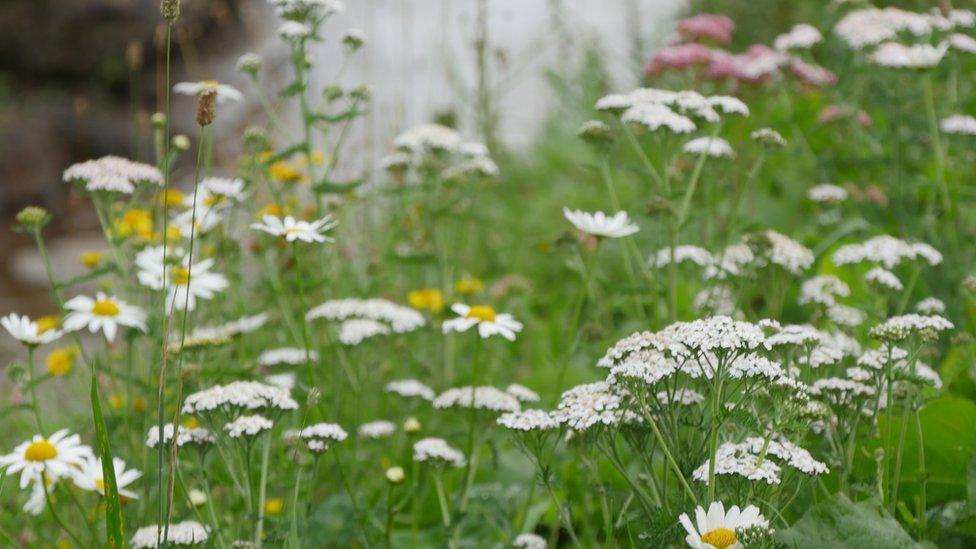West Norfolk peat wetland project gets £210k for new reserve
- Published
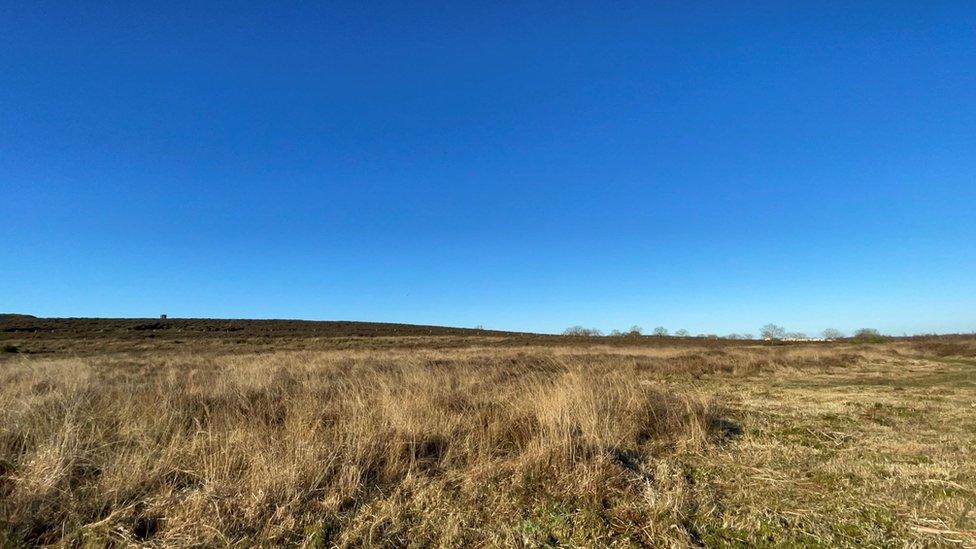
The new Grimston wetlands project at Roydon Common, west Norfolk, will be managed by Norfolk Wildlife Trust
A wetland improvement project is to benefit from £210,350 from a landfill operator charity.
The money from FCC Communities Foundation, external will be spent on the new Grimston wetscapes scheme near King's Lynn.
Norfolk Wildlife Trust's (NWT) will manage the site, part of Roydon Common and Tony Hallatt Memorial Reserve.
The reserve is one of the UK's most important lowland, wetland and heath landscapes, NWT said.
The NWT wetland supports a range of plant and insect life, including rare or threatened UK species, such as black darter dragonfly, insectivorous sundew plants and the tormentil mining bee.
Ash Murray, Norfolk Wildlife Trust's West Norfolk Reserves manager, said historically, these sites would have formed part of a vast chain of wetlands, but due to drainage, afforestation and development, almost all of the peatlands have been lost.
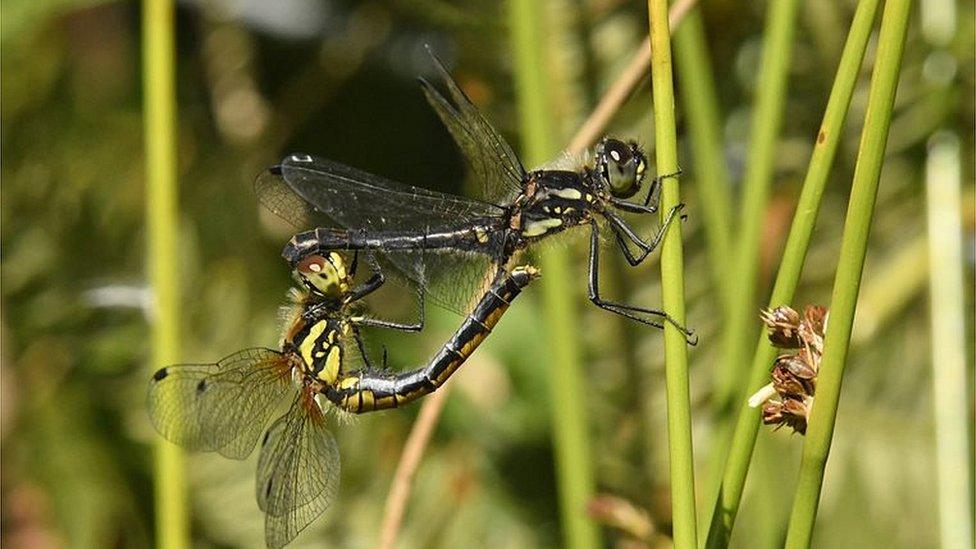
Black darter dragonflies mating at Roydon Common
"Over the last 20 years, we have worked hard to restore the heathland and wetland habitats of these precious sites," he said.
"We've been thrilled to see so much rare and fascinating wildlife return - from incredible insect-eating plants and peat-forming mosses to rare fungi and an abundance of breeding wading birds.
"Our work will bring back to life [Grimston] wetlands that have been damaged by past pollution and climate change for the benefit of Norfolk's wildlife and people.
"In addition to helping to combat the impacts of climate change, we'll be providing thriving reservoirs of peatland species that can help to re-establish damaged peatlands elsewhere in west Norfolk."

Installing ground water monitoring tubes on Grimston Warren
Mr Murray said plant life to help slow water loss and carbon-capturing peat could start to re-colonise the site within the next three to five years.
The works are due to be completed in March 2025.

Follow East of England news on Facebook, external, Instagram, external and X, external. Got a story? Email eastofenglandnews@bbc.co.uk, external or WhatsApp 0800 169 183
- Published23 November 2023
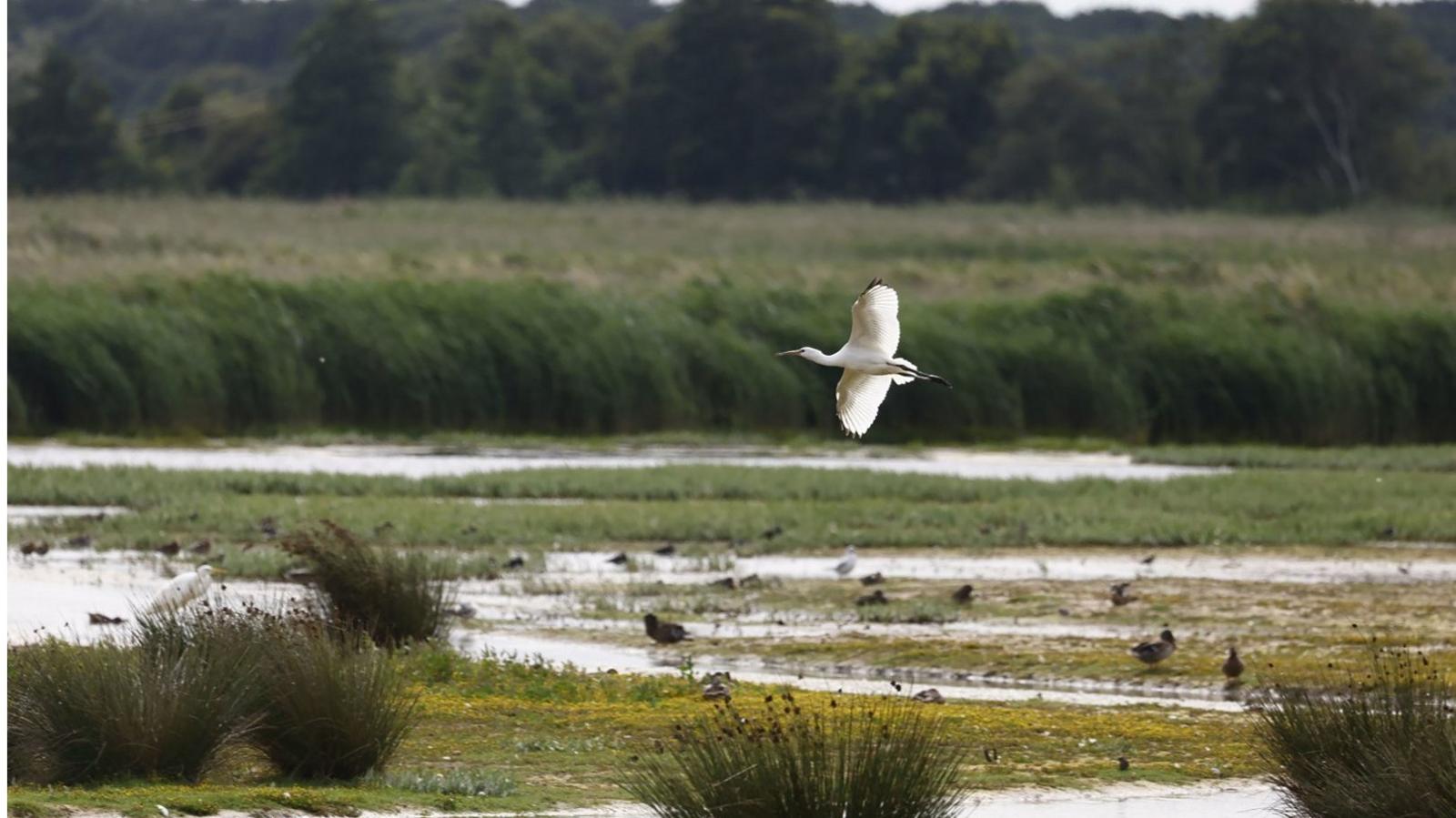
- Published30 August 2023
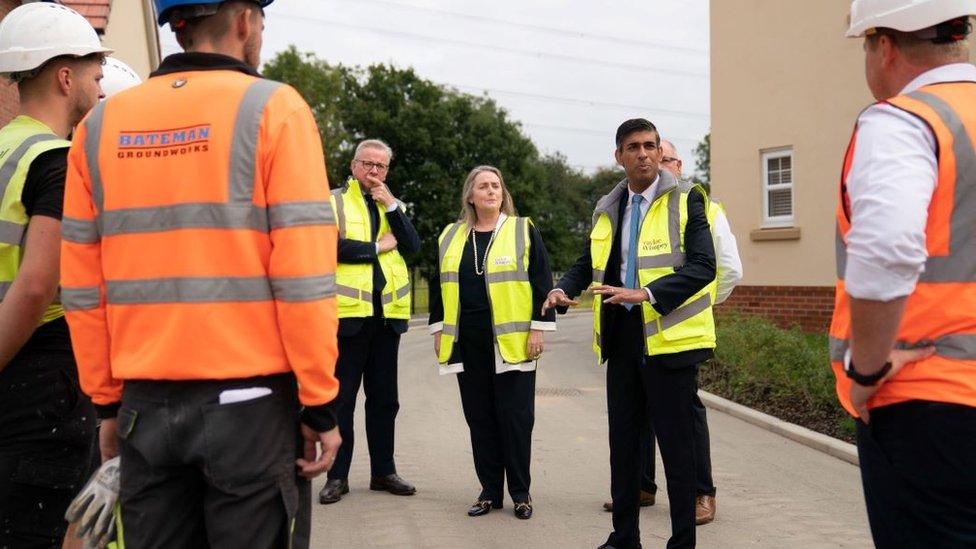
- Published16 June 2022
